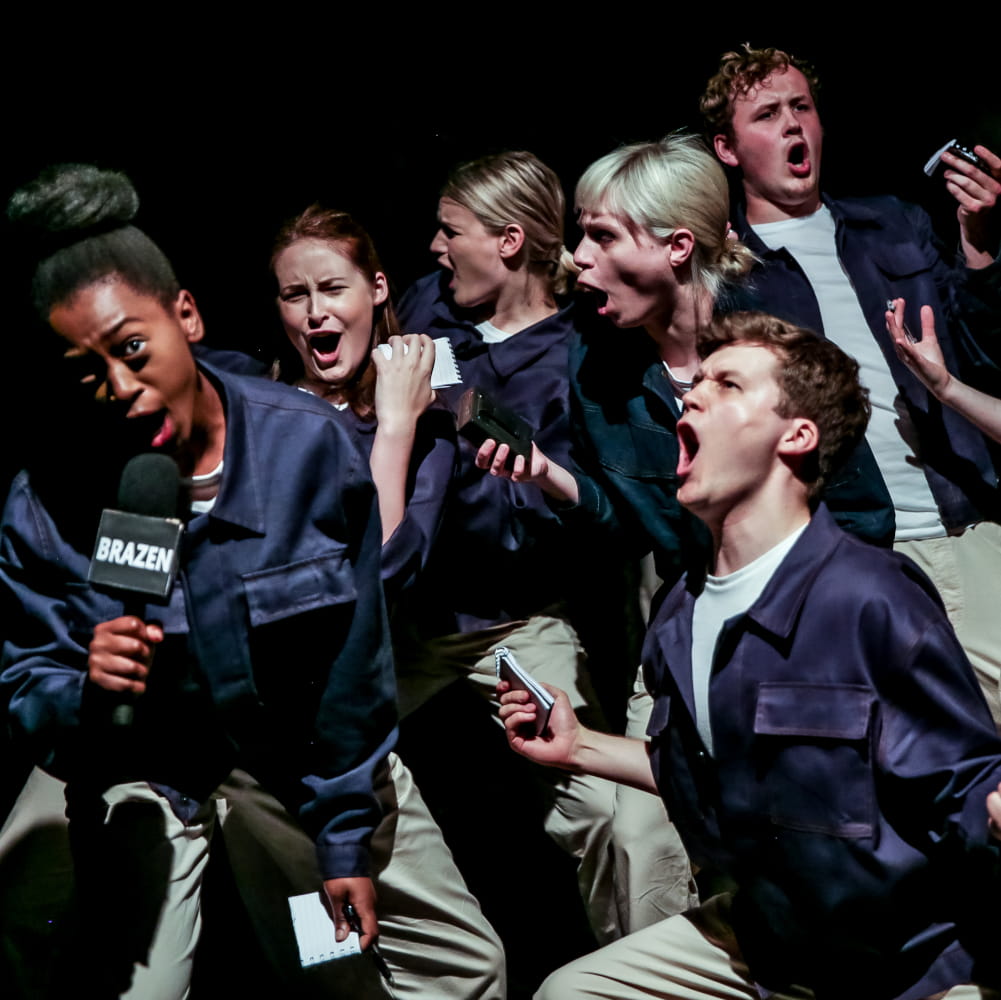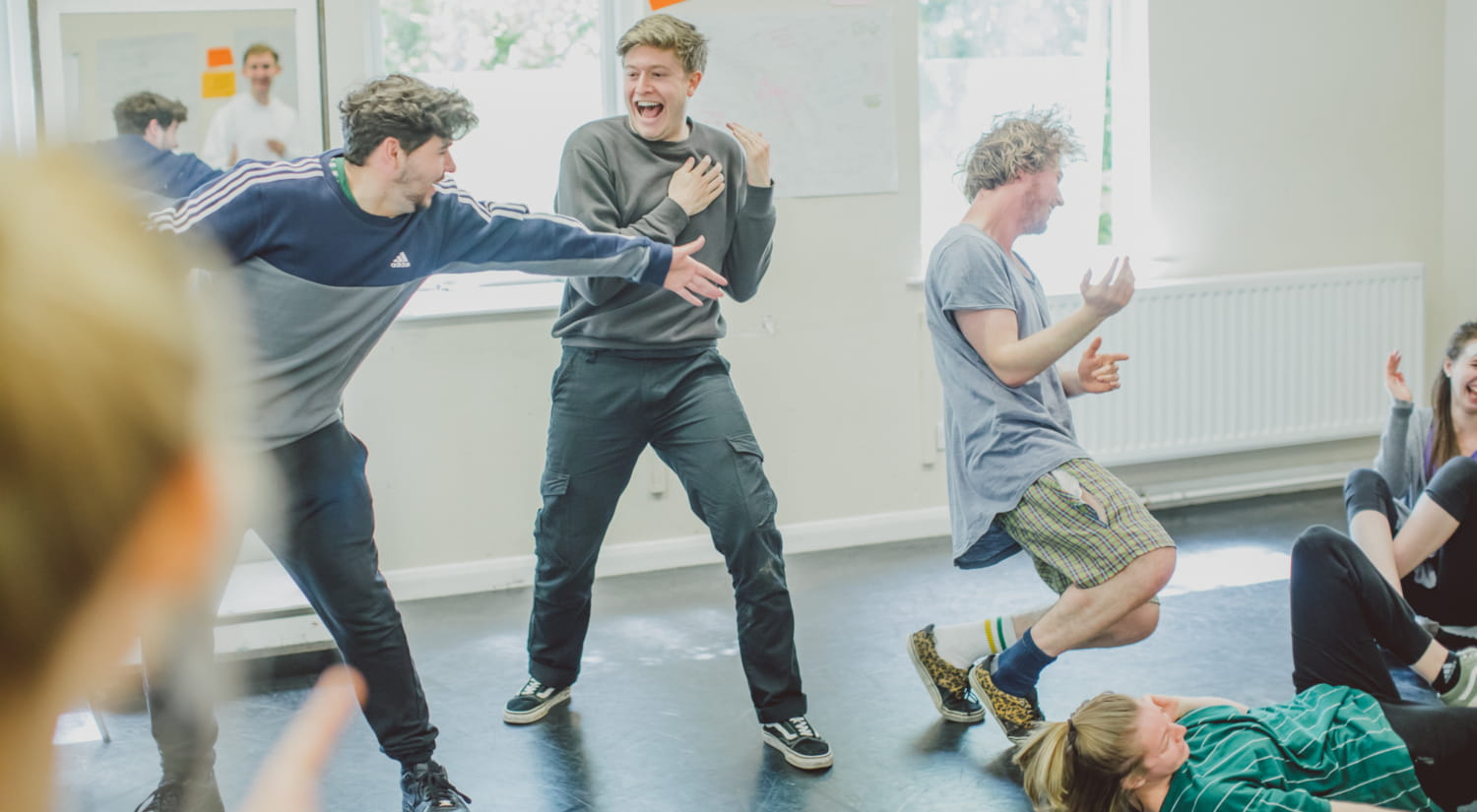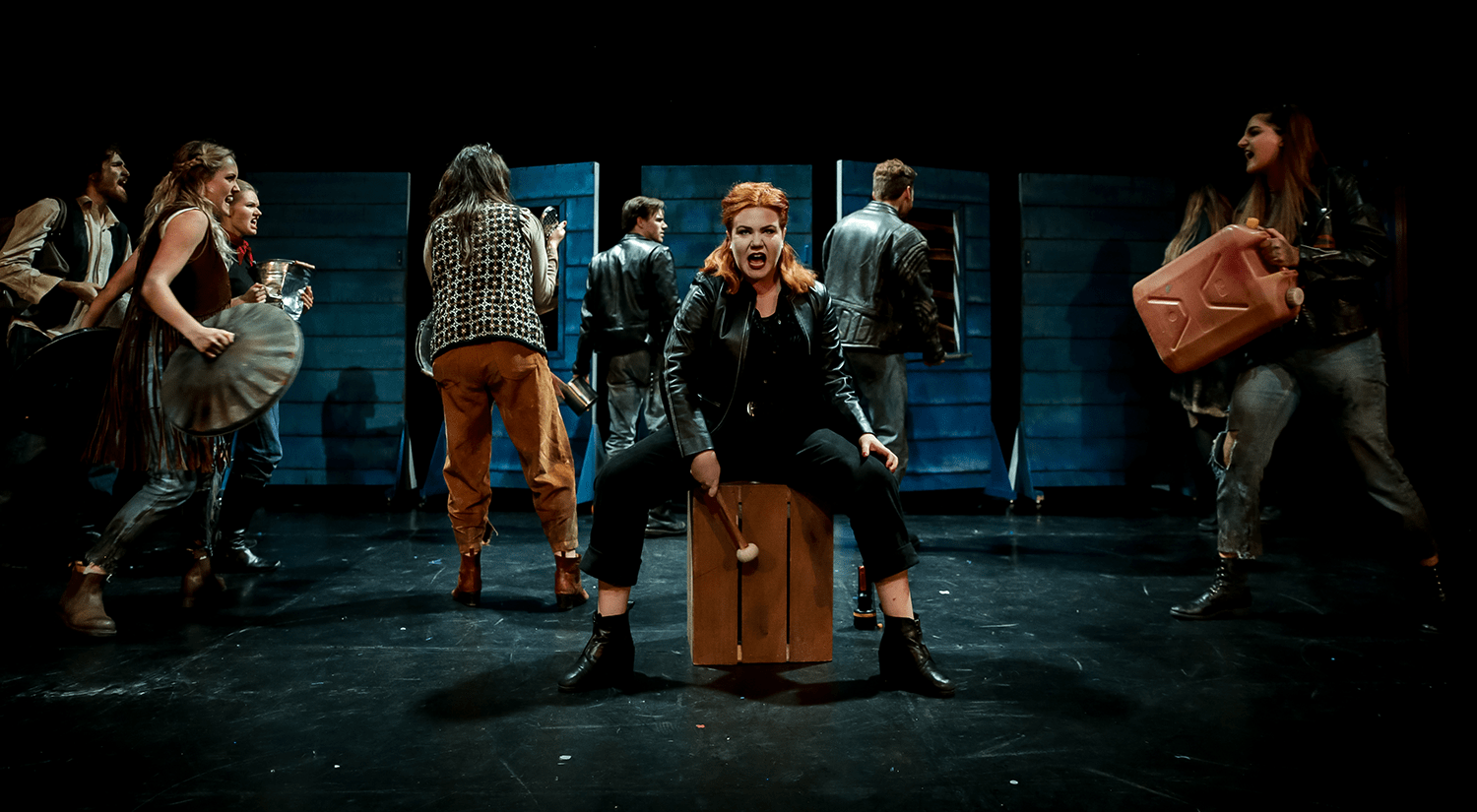FAQs

Have a question?
These are our most frequently asked questions about applying to East 15.
If you have a specific query that's not listed below, please email us.
FAQs
Do you hold Open Days?
For more information, please see our Open Days page.
How do I apply for a course at East 15 Acting School?
What is the deadline for applying / submitting my audition?
We do not have a deadline, but do strongly suggest that you apply and submit your video audition as soon as you can, preferably by the following dates:
Undergraduate courses - before the end of February
Masters courses - before the end of March
We do accept applications after these dates but if you apply late and are invited to a recall audition, there may be limited audition dates available.
Usually don’t close our courses until at least the end of May but may close them earlier if we feel that we have made enough offers.
Do you have an Administration Fee Waiver Scheme?
We do not charge a fee to submit your application and video audition. If you are invited to attend a recall audition, you may be asked to a £10 booking/administration fee.
We believe in fair access to training and therefore provide free auditions to undergraduate applicants from low-income households. Full details, eligibility and how to apply for our Administration Fee Waiver can be found on our 'How to Apply' page.
This scheme only applies to undergraduate applicants and is not open to those applying for masters courses.
Applicants who wish to attend an agreed East 15 Acting School audition that is held overseas or off campus in the UK, will be asked to pay the £10 administration fee to secure their place at audition.
What do I need to prepare for my audition?
Further information about what to prepare for your video audition can be found on our Auditions page.
Applicants who are only applying to our courses that require an interview instead of an audition are not required to pay a fee.
Can I use source material that is not from a play for my contemporary monologue (e.g., a novel or screenplay)?
You can choose a speech from a published contemporary play or film/TV drama from writers working in the 20th or 21st centaury.
Do East 15 provide a list of suggested monologues (or a list of monologues to stay away from)?
No, we don't have any preferred monologues for your video audition. Please choose monologues with which you feel a particular connection, whether they are commonly known or less so. Beware of using monologue books to select your pieces: it is essential that you read the entire plays from which your monologues are selected so that you thoroughly understand the character’s circumstances and to whom they are speaking and why.
Some courses do have a preferred list for recall auditions. You will be sent instructions on what to prepare if you are sent an invitation to attend a further audition following submission of your East 15 application and video audition.
Can I use an accent in my audition?
If you feel that a piece that you have selected warrants the use of an accent, you are welcome (but not required) to do so.
When choosing an audition speech, can I choose a character of any gender identification?
Yes.
How strict are your speech time limits
It's fine if your speech is slightly less than or a few seconds over the time limit.
How important is it to select a character for my audition who is in my age range?
We are interested in discovering who you are as an actor. You may choose any character with whom you imaginatively connect.
Do I need one comedic and one dramatic monologue
Not necessarily, although we do ask that the different characters you choose allow you to bring different aspects of yourself and reveal your capacity for transformation.
What is the difference between BA Acting and BA Acting (International)?
BA Acting (International) focuses on cultural exchange, combining the international contribution of students from different dramatic traditions with the British training system. Students on this course are often furthering their artistic development in Britain, having gained qualifications or experience in other countries. They will be looking for transcultural discussion from their peers on the course, culminating in an international festival of theatre.
BA Acting identifies and develops raw talent in young actors, enabling them to find their voice and process as an artist. They will be given an evolutionary learning journey, starting with the self and culminating in professional development, to ready them for a career in the performing arts industry. This course provides practical preparation for all contemporary industry areas, including voice acting, stage, television and film, culminating in industry-focussed promotional showcase events.
The BA degree you receive from both BA Acting (International) and BA Acting have exactly the same weight and standing in the industry. You work with many of the same skills tutors and we promote you with showcases for casting directors and agents on both programmes.
What is the difference between MA Acting and MA/MFA Acting (International)?
The MA course is a 12-month programme that leads to a Master of Arts qualification. The MFA runs for 20 months and leads to a Master of Fine Arts qualification. Both are practical training programmes and are highly respected across the globe; however, the qualifications can be viewed differently in certain countries. In North America, the MFA is often termed a "terminal degree", meaning it is the highest degree attainable in a student' chosen academic pathway. Frequently, North American colleges/universities require an MFA (rather than a MA) or a PhD to teach on their programmes.
East 15 offers MFA's in Acting (International), Acting with Digital Media, and Theatre Directing.
At the end of their first term, students registered on the MA are given the opportunity to change their course to the relevant MFA if they desire.
What is the difference between MA and MFA?
At the end of their first term, MA students with us are asked to decide whether they wish to take the 1 year MA route or the 2 year MFA one. Even if you have initially signed on for either the MA or MFA, you can change your mind at this stage.
The MA course leads to a Master of Arts qualification and the MFA to a Master of Fine Arts qualification. Both are highly respected, but you may find that some countries acknowledge the 2 year MFA route more than the 1 year MA.
What funding is available to me?
You can find further information on fees, funding and scholarships in the links below:
Undergraduate fees and funding
Fees and funding for postgraduate study
There may be other industry awards that you can either apply for or be nominated for once you are a student and details of these will be posted on the student notice boards as they become available.
All of our undergraduate courses, including the Cert HE in Theatre Arts, are eligible for UK Government Student Loans. You will need to contact the Student Loan Companydirectly to check your status and how much funding you are entitled to.
What accommodation is available on campus?
Loughton -
Our Loughton East 15 students live and study in the local area and our Student Services Team are here to help with any questions you may have. Choose between a shared house, living with a landlord or letting a whole house. If you have any questions, contact our Student Services Team
View a list of all nearby letting agencies here
Do I need to provide a reference with my application?
No, we do not require references from applicants.
Do I need to provide an IELTS with my application?
We do not require you to have an English language qualification prior to your application, as your language skills will be assessed at audition. If you are then offered a place at East 15 and a qualification is needed, this will be a condition of our formal offer.
As a rule, we require all international students who will need a Student Visa to have a recent academic IELTS, or equivalent qualification*, with an overall score of 6 or above and at least 5.5 in each component. If you would not need a visa to study in the UK then the qualification may not be needed.
*a link to the list of accepted English Language qualifications will be included in the formal offer conditions.








